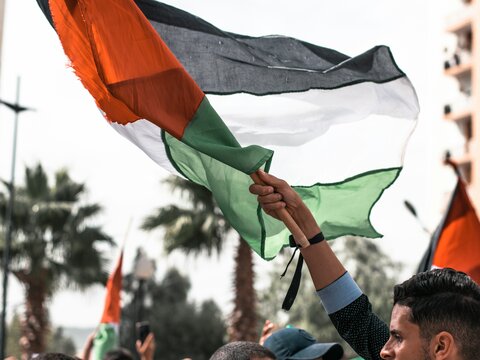Controversies in qualitative research: research under siege

Book on to our free seminar with guests from this episode on November 13.
Subscribe on Spotify or Apple Podcasts, or listen below.
Amidst the ongoing occupation and genocide in Palestine, how do qualitative health researchers navigate their work and find their voice? What kind of research is it possible or ethical to do under siege? This episode, Sohail speaks to Weeam Hammoudeh, Zeina Amro, and Layth Hanbali. They delve into the courage, resilience, and ethical considerations that researchers from this region grapple with, touching upon the broader implications for academic freedom and advocacy.
Zeina Amro is a lecturer and researcher in the field of health and mental health. She is interested in how we understand and practice these fields from lived experience in Palestinian and other similar contexts. She conducted her doctoral research on the experience and understanding of wellbeing through the perspective and lived experience of Syrian refugees in Jordan. Most recently she co-researched the experience of nurses at the Augusta Victoria Hospital, especially during the war on Gaza and its repercussions . The research was a collaboration with Dr. Peter Dronkers at the University of Humanistic Studies - The Netherlands. In addition, she works as a consultant with non-governmental organizations, and is a part-time lecturer at Birzeit University.
Dr. Weeam Hammoudeh is Assistant Professor at Birzeit University’s Institute of Community and Public Health, Visiting Scientist at the FXB Center for Health and Human Rights at Harvard University and co-Director of the Palestine Program for Health and Human Rights. With a Ph.D. and MA in Sociology from Brown University and an MPH from Birzeit University, her research focuses on the effects of political and social transformations on health, psychosocial well-being, and health systems, particularly in Palestine. She has led projects on youth mental health, adolescent refugee health, and health system responses to COVID-19 and is actively involved in the Palestine-Global Mental Health network and is a policy member at Al-Shabaka. Her work is widely published in both academic and non-academic outlets.
Dr. Layth Hanbali is a health researcher and educator with a background in medicine and global health policy. He holds a Ph.D. in history from ULB, where his research focused on the history of Palestinian social movements in health, conducted in collaboration with Birzeit University. He is currently coordinating a project for the Institute for Palestine Studies on documenting the destruction of the health sector in Gaza. Dr. Hanbali also works as an independent consultant on global health policy and financing and has taught at institutions like Imperial College London. His academic journey includes a medical degree from University College London and a master's in Health Policy, Planning, and Financing from the London School of Economics and the London School of Hygiene and Tropical Medicine.